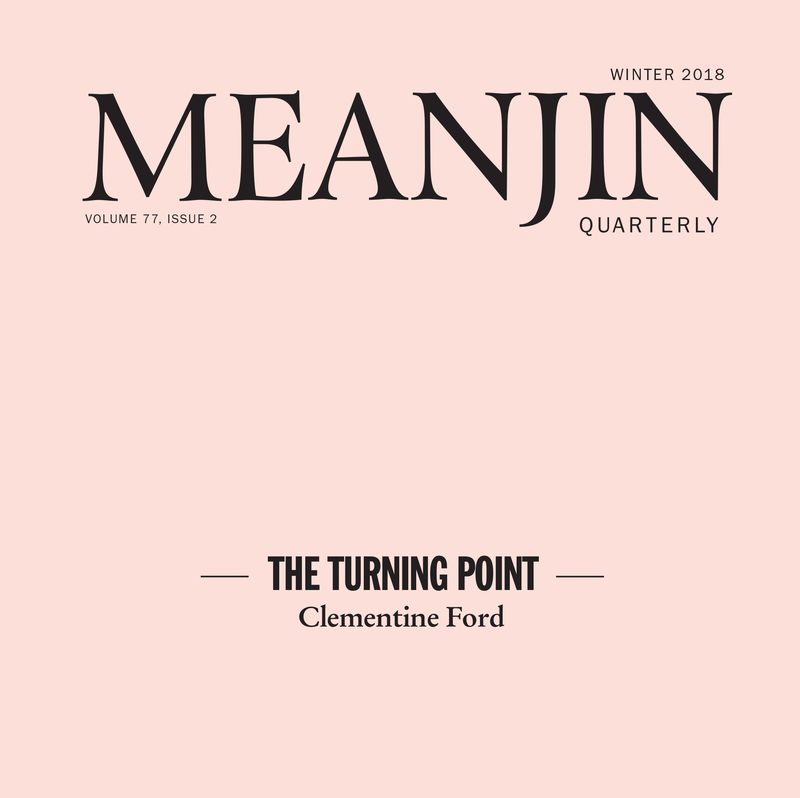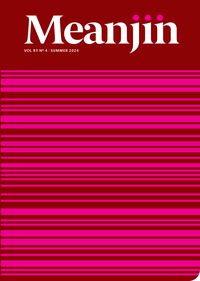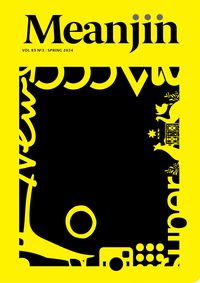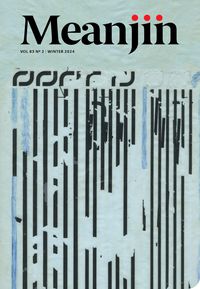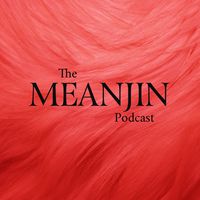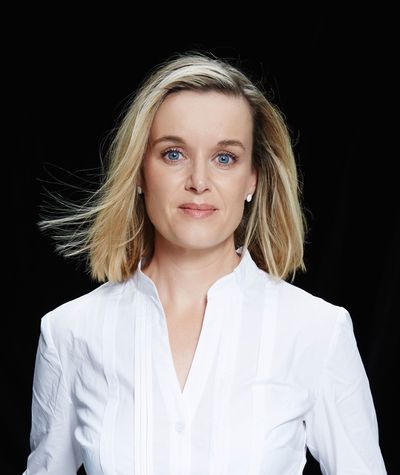Meanjin: An excerpt of 'She Will Have Her Sway' by Clare Payne
How the shift of wealth to women will change everything from education to the environment, writes Clare Payne.
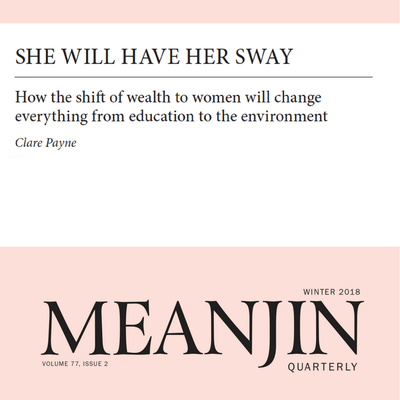
Meanjin is one of Australia’s best, and oldest, literary publications. The newest edition, Winter 2018, features the essay ‘The Turning Point: One man's downfall, #METoo and the rising up’ is written by Clementine Ford. While Clementine Ford wonders whether the #MeToo movement represents a turning point for women, Anna Spargo-Ryan thinks not: 'In the wake of #MeToo, when women said ‘this time it will be different’, it wasn’t.'
In her essay 'She Will Have Her Sway', Clare Payne argues that women are entering a new age of economic empowerment. Here's an extract from Clare's essay.
It was in 1984 that Cindy Lauper sang ‘Money, money changes everything.’
Perhaps she sang with such conviction because she knew it to be true. At 17 she had already left home and was living in a cockroach-infested apartment with drug-dealer neighbours. She hitch-hiked, occasionally stole clothes for herself and her sister and at times had no food, her boyfriend presenting a squirrel for dinner that he had shot. When Lauper sang, a new generation of women listened. Previous generations had already been propelled into the likes of Avon, lured by the chance to have an independent income and their own car, a luxury one at that. Money, it seemed, could change everything.
We’ve long called her Mother Earth, yet the world we’ve lived in has been decidedly male. Far from being in a state of acceptance of such a reality, women have been on a quest, variously articulated as one of equal rights or human rights. Generations of women and their male comrades (sometimes known as the enemy) have met the challenge with vigour, although subject to bouts of despondency, confusion and regrouping. Nonetheless, they’ve persisted, buoyed by the odd breakthrough, a female presidential candidate for example, although her loss risked a charter into the doldrums. But now we find ourselves far from there, somewhere on the high seas.
As we battle over the specifics of how far we’ve come, pointing to rampant sexual abuse, unequal pay, gaping inequality and scant retirement balances, a new world power is clearly emerging—and it’s female. Unlike other generations, however, more women are armed with the thing that makes the world go round—money. Women have more money than they’ve ever had and they are set to inherit, as well as earn, even more. How women spend, save and invest this money will change, well, everything.
There are obvious signs of this shifting world order: more single women with no need to marry for financial security, for example. Each census tells us there are more women living alone, not just the elderly but also the young, and the more money they have, the more common it is. More than 80 years ago Virginia Woolf declared that money and a room of one’s own delivered women the freedom to write. Today many women have a whole home in their own name, and the freedom to do so much more.
Women are to be found in boardrooms, law courts and the leadership teams of businesses hoping to court investment. They’re not in numbers deemed fair or equal but they keep appearing, and we’re keeping count. Wall Street might have been slow to shake its male dominance but when it comes to the finances of the world, women hold the top spots. We have Christine Lagarde as managing director of the International Monetary Fund, an organisation charged with the responsibility to foster global monetary cooperation and secure financial stability, and Kristalina Georgieva as chief executive officer of the World Bank, which includes the International Bank for Reconstruction and Development and the International Development Association. Given the gender composition of the banking and finance sector (majority male), having women in these positions is symbolic of more than just bounds forward in gender diversity, it says something about the future of money.
Women are rising not just through the ranks at work but perhaps even more importantly also in their share of the world’s wealth. Each year more women are added to rich lists, be they compiled by age, industry or region. As we continue to question the concentration of wealth among the few, with trickle-down economics yet to be proven true, it would seem that it’s even more than a trickle the rest of us can hope for from this new distribution of wealth.
When money is scant, women tend to spend it on children, food and communities, changing their world and the world of those around them. Policymakers have recognised this by focusing on financial empowerment of women as a way to enhance global development. At the other end of the spectrum, women who have lots of money are more likely than men to invest it ‘responsibly’, balancing ethics with returns. Global investment firms are starting to recognise this as a preferred way of thinking about money. Given where the quest for money has at times led us (slavery, money laundering, sweatshops), we should hail this change in how money might be managed. Finally more money might be put to good use.
***
In the past women were not able to inherit in their own right, and yet now they are set to inherit the majority of the world’s wealth. In the United States alone, women will inherit 70 per cent of the money that is passed down over the next two generations. It’s not just elderly women outliving their husbands who will inherit. In the coming decades, the baby boomers (perhaps the biggest and wealthiest generation in US history) will transfer an estimated US$30 trillion in assets to their Generation X and millennial children. But first, it is women who will be the stewards of what is termed ‘the great wealth transfer’.
Women of the baby boomer generation are the most financially empowered women in history. While some have never had the rush of being flush with money, others have had successful careers and financially rewarding partnerships such as marriage. They’ve held and benefited from investments (especially property) during ‘boom’ years and they will inherit from parents and husbands. This is known as a double inheritance windfall. Wall Street advisory firms are already jostling to advise these women on how they might manage and spend their wealth. They’d be wise to turn their minds to what the woman wants from her money. Firms that built their reputations and lined their own pockets by giving advice to families for generations will risk losing their most lucrative clients if they fail to understand how she wants to invest and spend, and what she wants to do in the world. It may well be different to that of her father, brother or husband.
Women tend not to have a clear divide between their personal values and their own financial investing. They’re not always content to abandon their values for the sake of a dollar, instead their values often drive their choices. This sees women investing in ethical funds at higher rates than men. While Warren Buffet touted ‘value investing’ (the seeking of stocks that are undervalued), many women, particularly young ones, are declaring it wiser to align one’s financial interests with one’s personal values instead, and they are prepared to earn less to maintain this alignment. While being called a ‘do gooder’ might offend at school, for the wealthy it could be considered a badge of honour: with privilege comes responsibility. For others it’s a natural tendency, no matter how much or little they have.
As the world of ‘socially responsible’ investment has made its way into financial markets, its appeal to women has become evident. As early as 2015 (which is a long time ago in the world of finance, where trades happen in 10 milliseconds or less) the global financial services firm Morgan Stanley declared that women were ‘leading the way’. They discovered that women are nearly twice as likely as men to consider the rate of return as well as the positive impact their money might have.7 In particular, they are likely to prioritise social wellbeing and the environment. It’s telling that Australian Ethical, a wealth manager that only invests in companies that have a positive impact on the planet, people and animals (a mandate they’ve held since 1986), has 20 per cent more women than men as superannuation fund members.
It’s not just how women invest that’s distinct, it’s also how they spend. Women more commonly seek to buy products and services from companies they believe ‘do good’ for the world, particularly for other women. They tend to be attracted to brands that directly or indirectly promote physical and emotional wellbeing, protect and preserve the environment, provide education, care for the needy and support connected communities. It’s a long list, but as women will tell you, they can multi-task.
